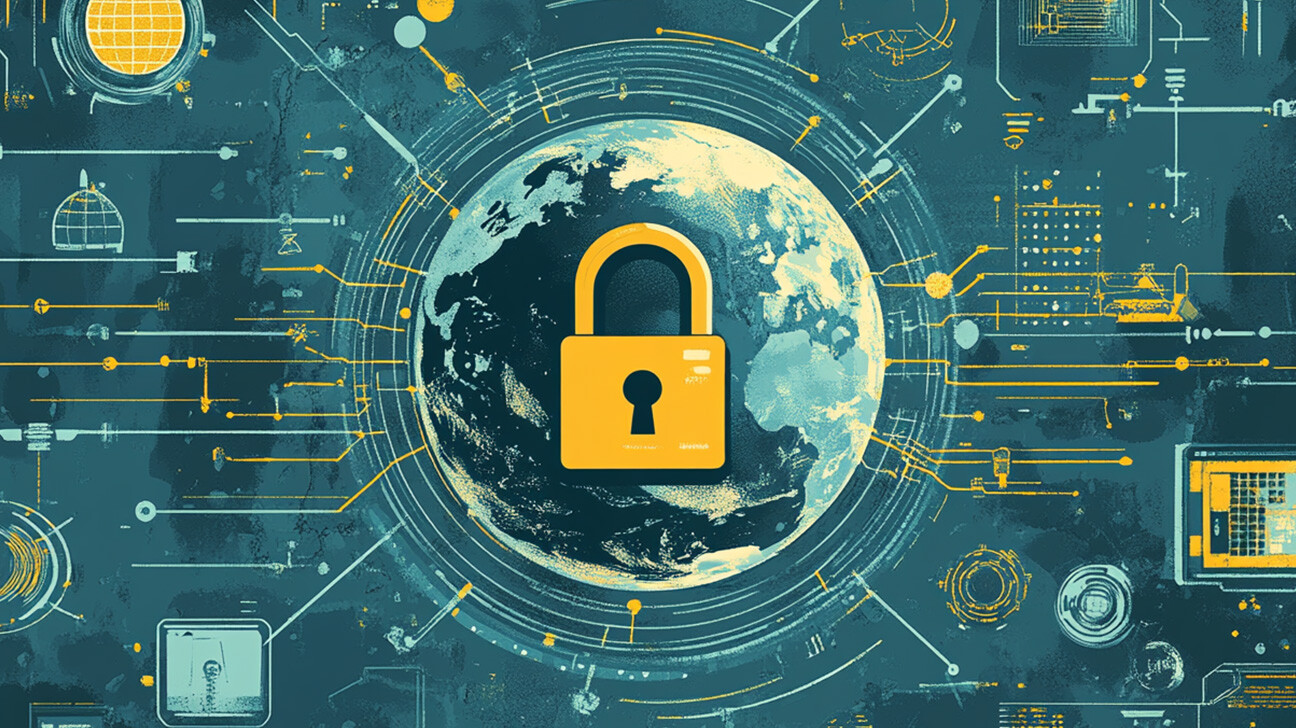Career 15 Vacancies 250+ Employees
Career 15 Vacancies 250+ Employees
InfoGuard AG (Headquarter)
Lindenstrasse 10
6340 Baar
Switzerland
InfoGuard AG
Stauffacherstrasse 141
3014 Bern
Switzerland
InfoGuard Deutschland GmbH
Landsberger Straße 302
80687 Munich
Germany
A year of great change – our look back over cyber security in 2020

The year 2020 will go down in history: Were you expecting for us to stop shaking hands and start wearing protective masks? Even now, the coronavirus is still a major determining factor in both our private and professional lives. The same is true of cyber security. Our cyber security and cyber defence specialists have been kept very busy this year (not just) because of the coronavirus and the ensuing cyber-attacks. Our marketing department was also very busy with our blog, for example, which this year drew more than 40,000 (!) readers. You can find out the topics that interested our readers most in our final cyber review of 2020.
It was not that easy to get a high ranking in our Cyber Security Review of 2020. (Cyber) viruses have been striking everywhere this year. Unsurprisingly, the headlines were dominated by the coronavirus, hacker attacks in the home office and malicious phishing e-mails that made the rounds. But it's not only these topics that made it to the top of the charts – we think you’ll be surprised.
1st place: Tracked by the virus right into the home office
The article “Home Office? Why not, but do it securely, with this 5 tips” was the most frequently clicked-on piece. A well-deserved first place, because the subject is still a very topical one and as there is a particularly large area of attack within the home office. We have slowly grown used to working from home too. The challenge was that many companies were not adequately prepared for home-based working at the start of the transition. In other words, there were insufficient IT and cyber security measures in place. We explained in the two-part blog article “Home Office? Why not, but do it securely, with this 5 tips” how to go about protecting yourself in these difficult times. Have you taken these tips to heart?
Our cyber security experts have also drawn up a checklist for “secure” home working. It contains 44 recommendations for the IT department, employees and management that can be rapidly implemented.
2nd place: The Fear Business
Second place is no less surprising: The article was published at the beginning of March, when Covid-19 meant that the Federal Government switched the information campaign to “red”. In the article “Red Alert – the hacker‘s trick with coronavirus”, Stefan Rothenbühler, the Senior Cyber Security Analyst at InfoGuard, wrote about how cyber criminals used the fear of the coronavirus for their own purposes, and why the business of fear works (almost) all the time. Cyber criminals disguise malware as documents that purport to be educational. By the way, Stefan recommended the book “Thinking, fast and slow” by Daniel Kahneman. Have you read it yet?
3rd place: A treacherous collection of small dots and squares
Have you noticed how QR codes are both insidious and interesting? You as readers have obviously appreciated how we exposed this security gap in the article “QR code – a little square that poses an underrated cyber risk” because the article has moved right up to the 3rd place. QR codes have been around for about 16 years and they bring many benefits. However, the more widespread they become, the more they attract cyber criminals. In the article we explained how vulnerable QR codes really are. Not to give the wrong impression, although QR codes can be “hacked” in theory, not in practice, but they can be used with malicious intent.
4th place: The cyber thriller in the dead of night
Do you remember last year's top article about the attack by the malware trio, Emotet, Trickbot and Ryuk? In the video embedded in it called “InfoGuard incident response – a real ransomware attack” we presented you with a genuine security incident within a Swiss company, including the cyber criminals' detailed actions. Blog articles like these are not just popular; in our opinion they are also an important way of warning you – esteemed readers.
Nephilim, Ryuk, Trickbot, Emotet and most recently Conti all pose a challenge to cyber security, as our InfoGuard cyber security experts have demonstrated once again. In our advent story you will learn how an attack proceeds in practice: from the initial phishing-e-mail and the ransom demand of around one million Swiss francs. Would you like to know how our cyber security experts dealt with the ransom demand and how the cyber-attack ended? You can only find out by reading the whole story.
5th place: If you don’t move with the times, time moves on without you
The article “If you don't keep up with the times, time move on without you” is last but not least in our Top 5. Why has this article been read so often? The Swiss federal law and the associated ordinance are no longer appropriate for our current digital age, so Parliament examined a draft of the new Data Protection Act in the 2020 autumn session. We have shown you the innovations and challenges this brings with it. Data protection is a complex issue, and digitalisation and the increasing threat of cyber-attacks do not make it any easier. Did you feel more ready for the new Data Protection Act after reading this article?
365 days of cyber security – the year of coronavirus, waves of phishing and new hacker tricks
2020 – What a year! You will have noticed that the cyber criminals are getting bolder and bolder, and they were probably one of the few who benefited from the coronavirus crisis. As usual, the number of security incidents noticeably went up in 2020. Specifically in figures*:
- Cloud – based attacks increased by 630% between January and April.
- Since the end of February, there have been 600% more phishing attacks registered.
- Hacker websites and forums had 66% more visitors in March alone.
- Ransomware attacks rose in the same month by 148%.
- The average amount of ransomware payments was 33% higher than in Q4 2019 – in concrete terms, just over 100,000 Swiss francs.
Terrifying, isn’t it? Alongside all the headlines around the Covid-19 pandemic crisis, the issues of cybercrime and cyber security really took a hit. Read more about this in our article “Cyber-crime & cyber security 2020 – what you may have missed in the news”.
Security awareness with InfoGuard
In cyber security the human factor is at least as important as the technical side, but it is still all too frequently neglected. That is why you should rely on effective measures within the framework of a security awareness campaign! You can find out more about the measures and how our cyber security experts can assist you here:
There were other issues such as gaps in security, cloud security, incident response, network security and many more that caught your interest this year. Which subjects would you like to read more about?
What will be next in 2021? Let it be a surprise – the main thing is to be prepared against a virus attack.
* from the Blogpost “Cyber-crime & cyber security 2020 – what you may have missed in the news”
Blog

Zero Trust Maturity Model 2.0: Reifegradmodell auf 5 strategischen Säulen

SWIFT CSCF v2025 erhöht den Druck: Nur cyberresilient ist compliant




